Killing Yourself to Live
- 256 pages
- 9 hours of reading
For 6,557 miles, from New York to Mississippi to Seattle, Chuck Klosterman decided to chase rock n roll and death across a continent.
Chuck Klosterman is an American journalist, critic, humorist, and essayist celebrated for his insightful explorations of pop culture. His essays delve into complex questions of identity, media, and modern life, challenging readers to reconsider their perspectives. Known for a style that is both witty and deeply contemplative, Klosterman masterfully connects seemingly disparate concepts. He examines them with an unexpected intellectual depth, offering unique insights into the contemporary world.

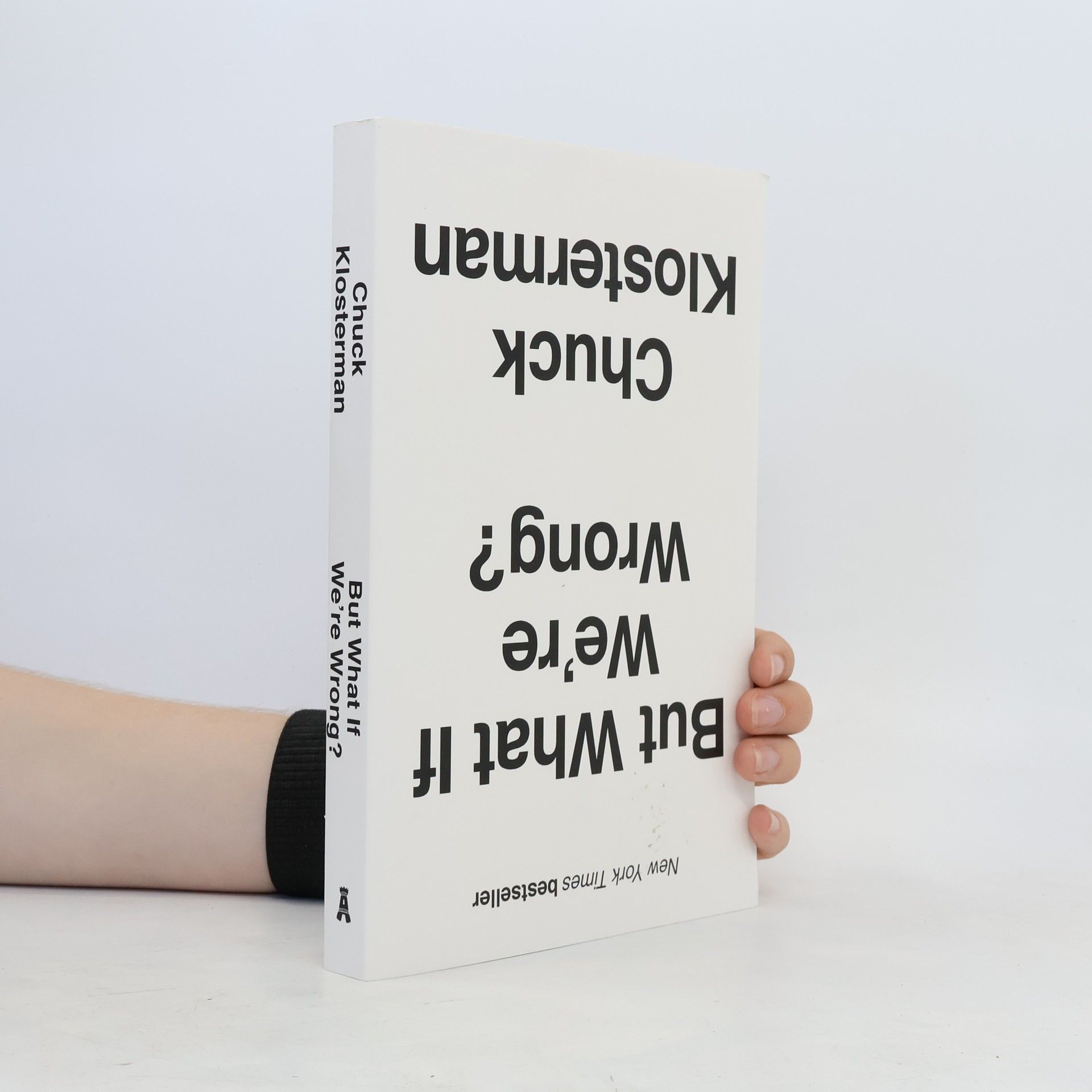
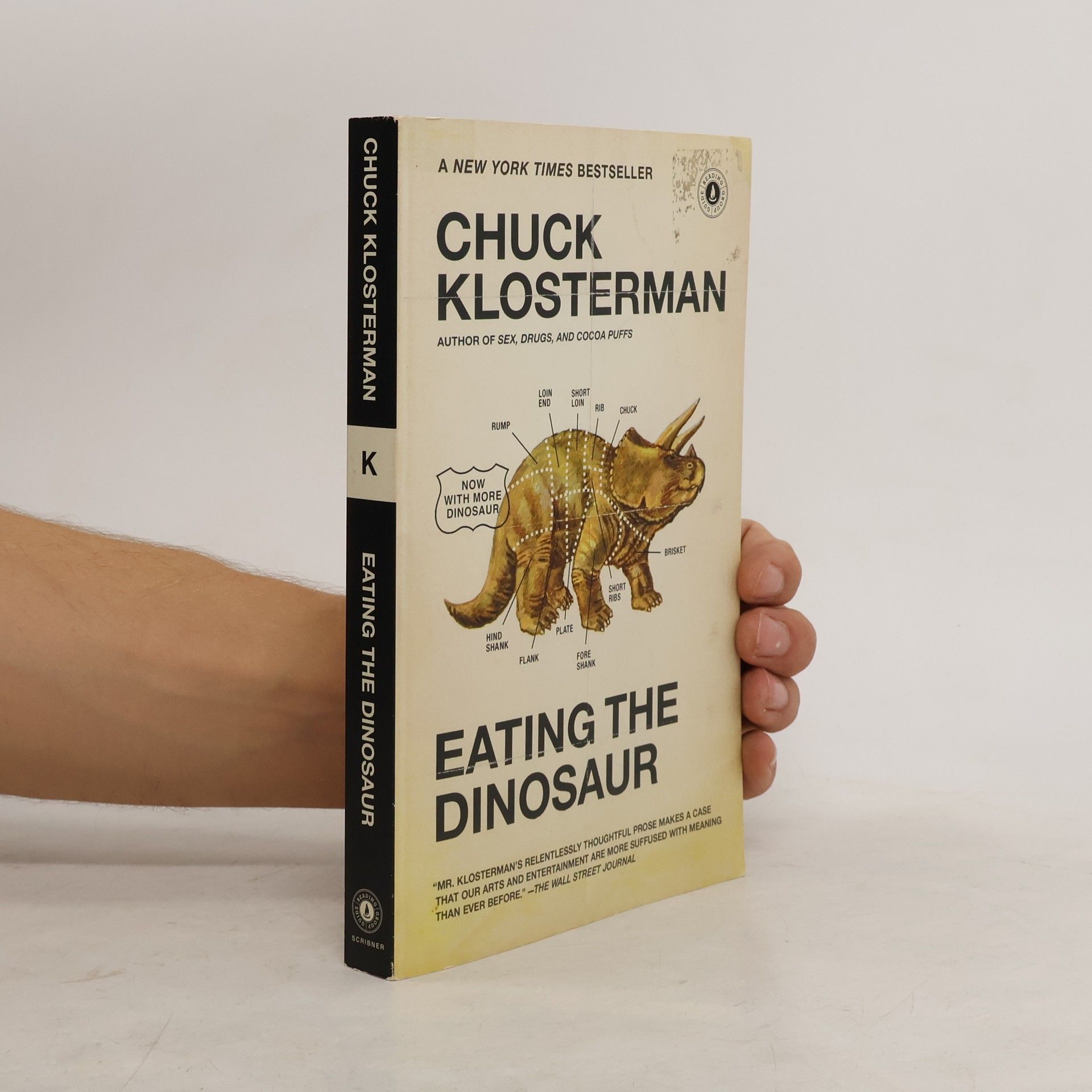
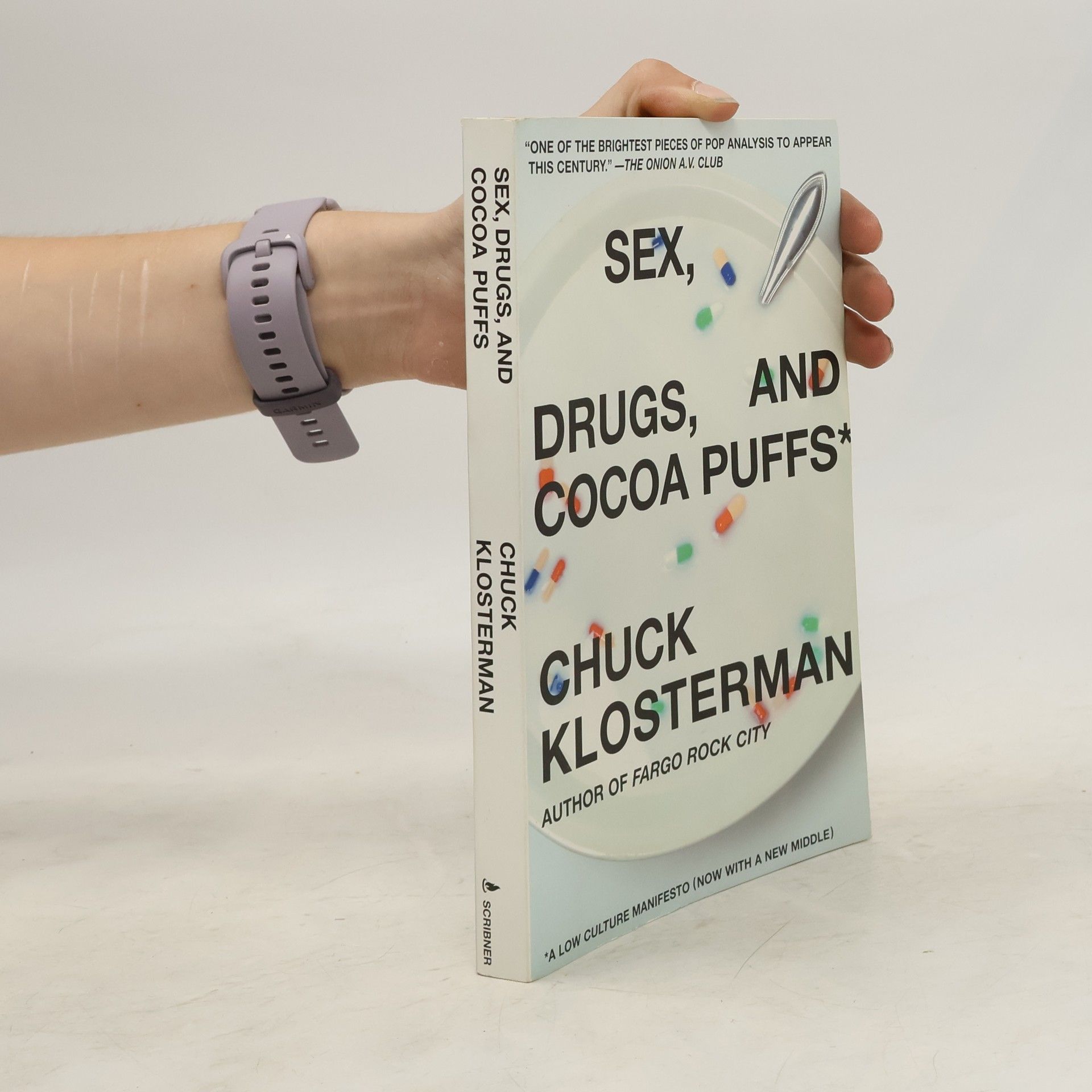
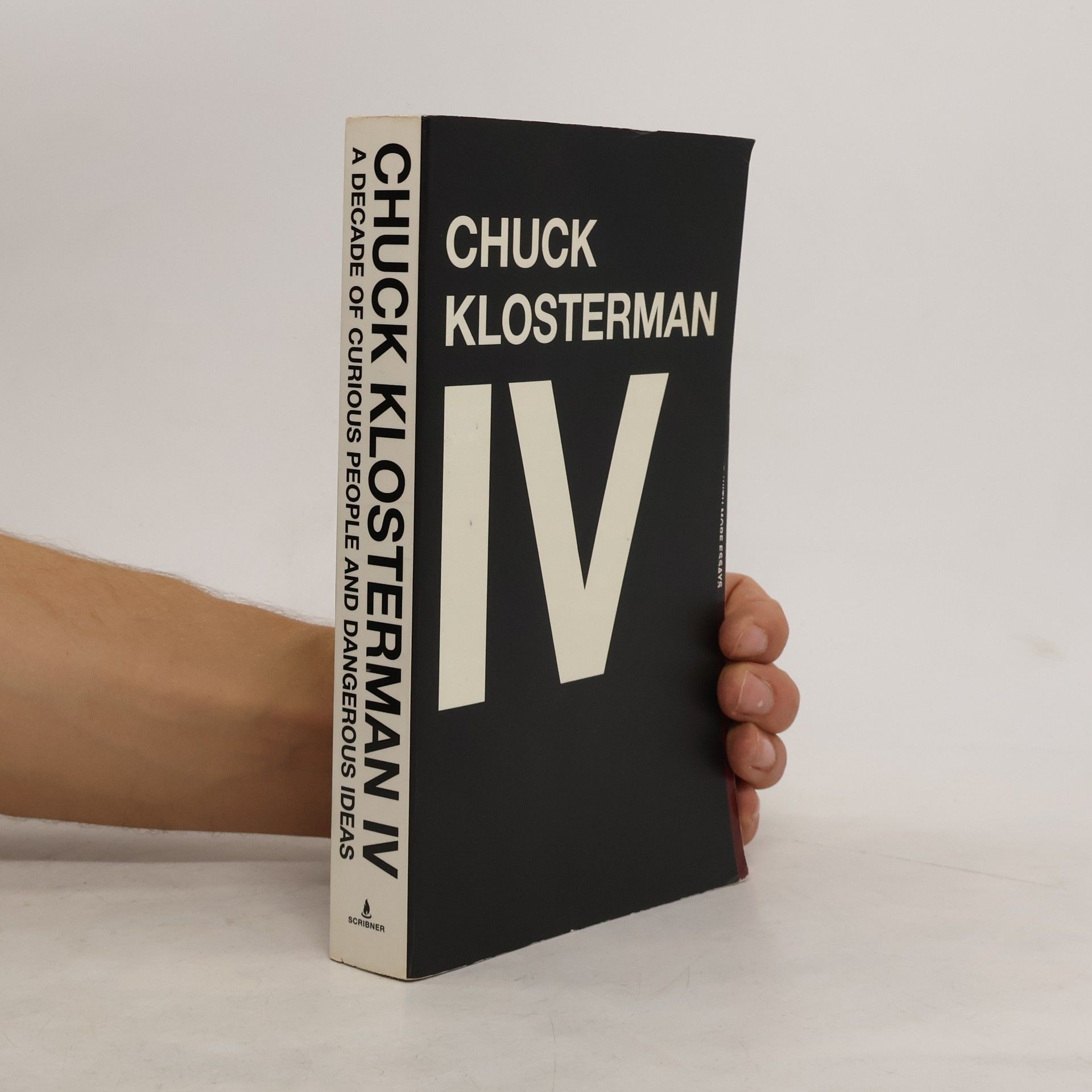
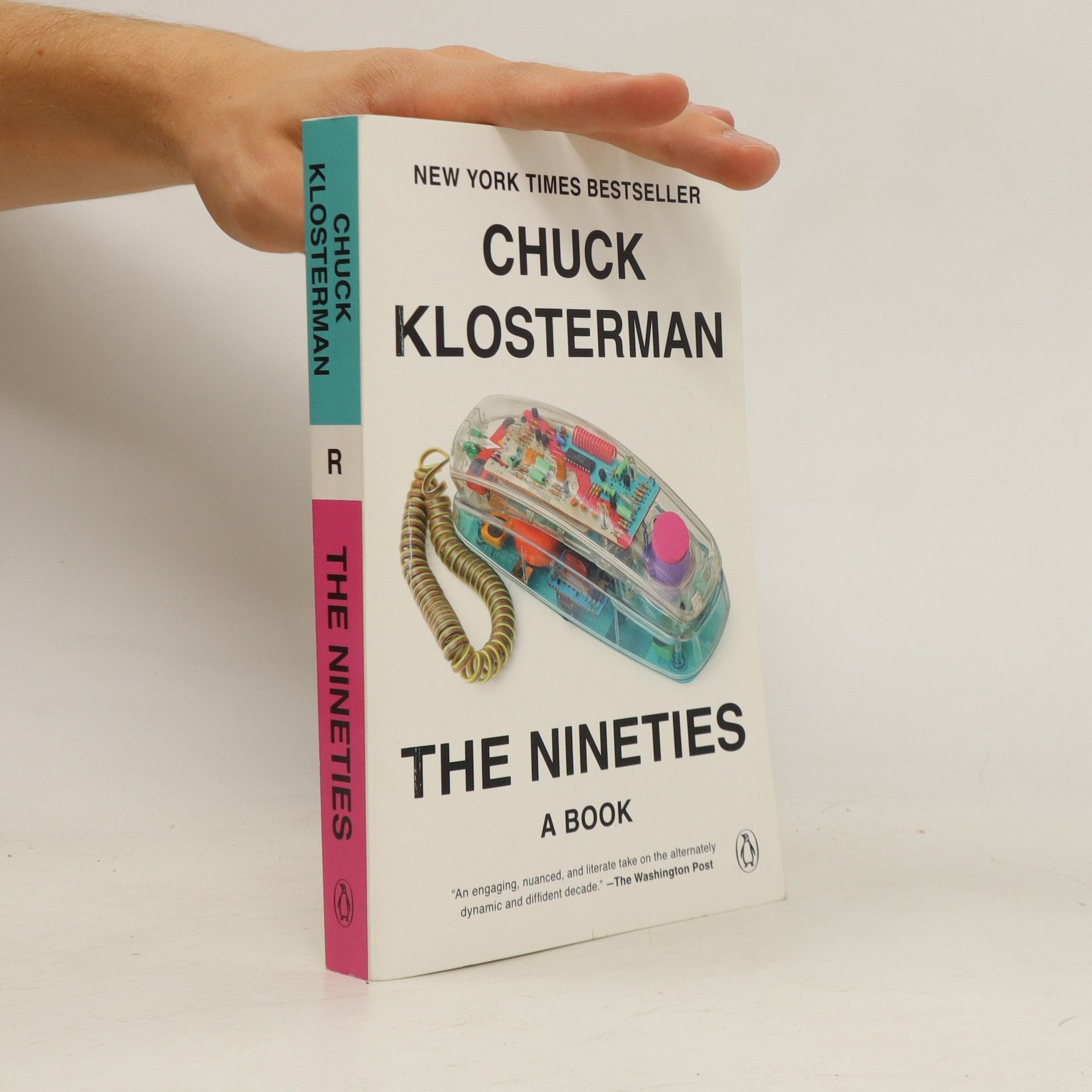

For 6,557 miles, from New York to Mississippi to Seattle, Chuck Klosterman decided to chase rock n roll and death across a continent.
An instant New York Times bestseller! “Informative, endlessly entertaining.”—BuzzFeed “Generation X’s definitive chronicler of culture.”—GQ From the author of But What If We’re Wrong comes an insightful, funny reckoning with a pivotal decade It was long ago, but not as long as it seems: The Berlin Wall fell and the Twin Towers collapsed. In between, one presidential election was allegedly decided by Ross Perot while another was plausibly decided by Ralph Nader. Landlines fell to cell phones, the internet exploded, and pop culture accelerated without the aid of technology that remembered everything. It was the last era with a real mainstream to either identify with or oppose. The ’90s brought about a revolution in the human condition, and a shift in consciousness, that we’re still struggling to understand. Happily, Chuck Klosterman is more than up to the job. In The Nineties, Klosterman dissects the film, the music, the sports, the TV, the pre-9/11 politics, the changes regarding race and class and sexuality, the yin/yang of Oprah and Alan Greenspan, and (almost) everything else. The result is a multidimensional masterpiece, a work of synthesis so smart and delightful that future historians might well refer to this entire period as Klostermanian.
Coming off the breakthrough success of Sex, Drugs, and Cocoa Puffs and Killing Yourself to Live, bestselling pop culture guru Chuck Klosterman assembles his best work previously unavailable in book form—including the groundbreaking 1996 piece about his chicken McNuggets experiment, his uncensored profile of Britney Spears, and a previously unpublished short story—all recontextualized in Chuck’s unique voice with new intros, outros, segues, and masterful footnotes. Chuck Klosterman IV consists of three parts: Things That Are True—Profiles and trend stories: Britney Spears, Radiohead, Billy Joel, Metallica, Val Kilmer, Bono, Wilco, the White Stripes, Steve Nash, Morrissey, Robert Plant—all with new introductions and footnotes. Things That Might Be True—Opinions and theories on everything from monogamy to pirates to robots to super people to guilt, and (of course) Advancement—all with new hypothetical questions and footnotes. Something That Isn’t True At All—This is old fiction. There’s a new introduction, but no footnotes. Well, there’s a footnote in the introduction, but none in the story.
Explores a range of modern cultural phenomenon, including Internet pornography, tribute bands, baseball rivalries, and reality television.
Bestselling author Chuck Klosterman returns with his fascinating and often hilarious musings on pop culture and sport
What if everything we are most certain about turns out to be totally wrong?
A man flying first class discovers a puma in the lavatory. A new coach of a small-town Oklahoma high school football team installs an offense comprised of only one, very special, play. A man explains to the police why he told the employee of his local bodega that his colleague looked like the lead singer of Depeche Mode, a statement that may or may not have led in some way to a violent crime. A college professor discusses with his friend his difficulties with the new generation of students. An obscure power pop band wrestles with its new-found fame when its song 'Blizzard of Summer' becomes an anthem for white supremacists. A couple considers getting a medical procedure that will transfer the pain of childbirth from the woman to her husband. A woman interviews a hit man about killing her husband but is shocked by the method he proposes. A man is recruited to join a secret government research team investigating why reality is mathematically unraveling. A man sees a whale struck by lightning, and knows that everything about his life has to change. A lawyer grapples with the unintended side effects of a veterinarian's rabies vaccination
Admittedly, the Advanced Theory had unpretentious beginnings; Jason Hartley and Britt Bergman invented the concept in 1990 at a Columbia, South Carolina, Pizza Hut. From those fast-food ruminations, however, grew a great hypothesis, perhaps best expressed by Chuck Klosterman, who wrote the foreword for this book; "When a genius does something that appears idiotic, it does not necessarily mean he suddenly sucks. What it might mean is that he's doing something you cannot understand, because he has Advanced beyond you." With that insight, you can take the great leap forward into this provocative and (let's admit it) extremely entertaining paperback original. Editor's recommendation.
Critically explores various aspects of postmodern America, including reality TV, internet porn, breakfast cereal, serial killers, Pamela Anderson, literary Jesus freaks, and the distinctions between apples and oranges.
"New York Times-bestselling author and cultural critic Chuck Klosterman compiles and contextualizes the best of his articles and essays from the past decade. Chuck Klosterman has created an incomparable body of work in books, magazines, newspapers, and on the Web. His writing spans the realms of culture and sports, while also addressing interpersonal issues, social quandaries, and ethical boundaries. Klosterman has written nine previous books, helped found and establish Grantland, served as the New York Times MagazineEthicist, worked on film and television productions, and contributed profiles and essays to outlets such asGQ, Esquire,Billboard, The A.V. Club, andThe Guardian. Chuck Klosterman's tenth book (akaChuck Klosterman X) collects his most intriguing of those pieces, accompanied by fresh introductions and new footnotes throughout. Klosterman presents many of the articles in their original form, featuring previously unpublished passages and digressions. Subjects include Breaking Bad, Lou Reed, zombies, KISS, Jimmy Page, Stephen Malkmus, steroids, Mountain Dew, Chinese Democracy, The Beatles, Jonathan Franzen, Taylor Swift, Tim Tebow, Kobe Bryant, Usain Bolt, Eddie Van Halen, Charlie Brown, the Cleveland Browns, and many more cultural figures and pop phenomena. This is a tour of the past decade from one of the sharpest and most prolific observers of our unusual times"--